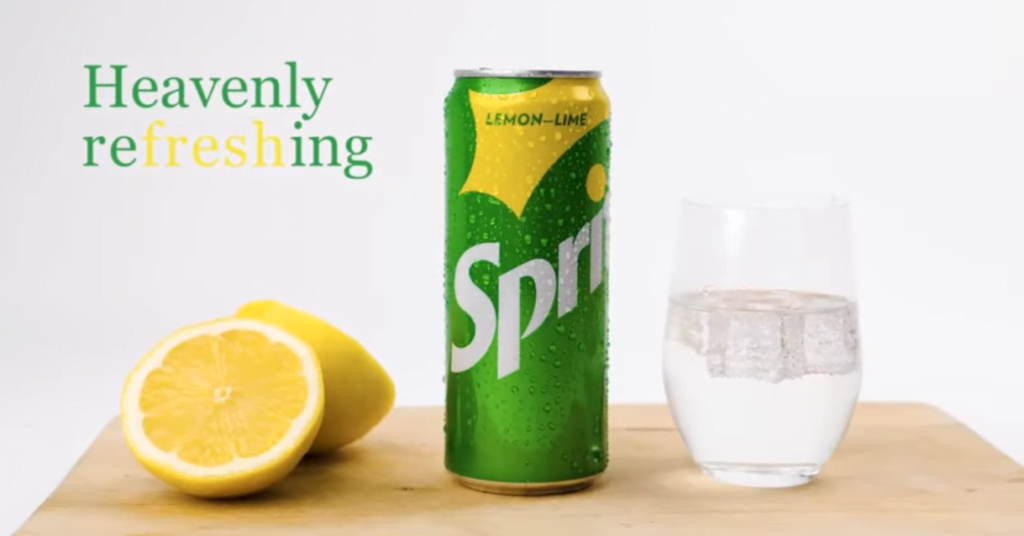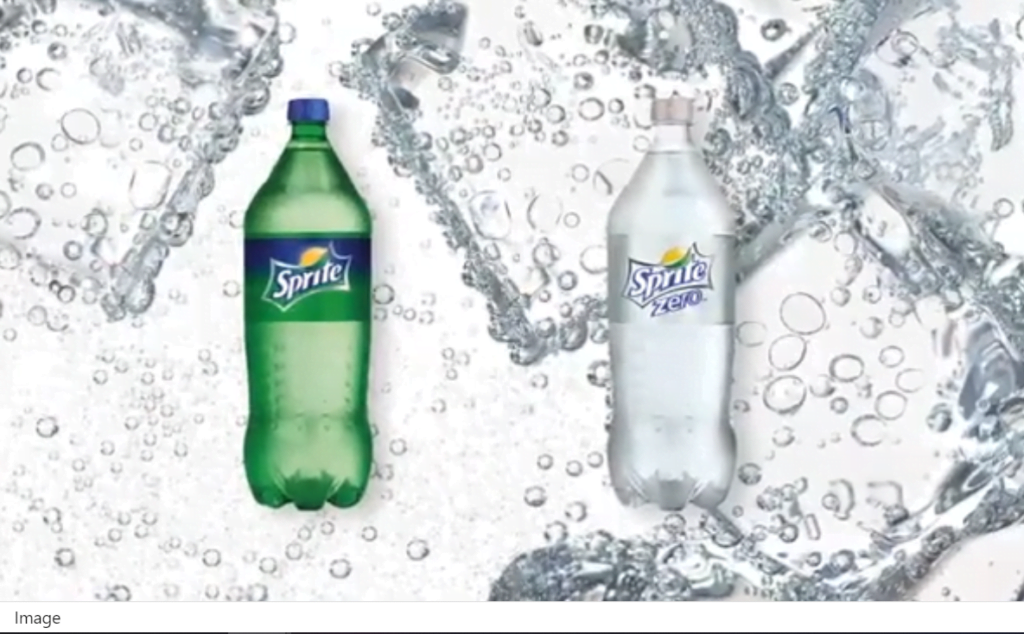Sprite Zero, a zero-calorie, non-caffeinated beverage, often appears as a tempting alternative in the soda aisle, especially for those monitoring their caloric intake. As a nutritionist, my encounters with Sprite Zero have always been marked by curiosity about its ingredients and the actual health challenges it may present. Is Sprite Zero Bad For You?
While it’s a carbonated drink akin to other sodas, the absence of calories might suggest a lack of nutritional value, a point often overlooked.

In my professional experience, assessing such beverages involves more than just tallying calories; it’s about understanding the overall impact on health. Sprite Zero, while a seemingly harmless choice, still warrants a closer look for those conscious about their dietary choices.
Is Sprite Zero Bad For You?
Long answer Is About Sprite Zero Bad For You?
Sprite Zero, known as Sugar-Free Sprite since its inception in 1974, presents an interesting case study in the world of carbonated, non-caffeinated beverages.
As a nutrition expert, I’ve delved into the details of such drinks, particularly those claiming no calories and their implied nutritional value. Comparing it to products like Diet Mountain Dew, I find a common denominator: aspartame, an artificial sweetener.
Aspartame has been linked to various health challenges. Numerous studies associate it with weight gain, primarily through inducing cravings and hunger.
More concerning are its components: aspartic acid, phenylalanine, and methanol. These metabolites can cause severe conditions, including central nervous system depression, and metabolic acidosis, even leading to coma in extreme cases.
The Food and Drug Administration (FDA), the regulatory body for food additives in the United States, has approved aspartame, but this doesn’t eliminate concerns.
Research indicates potential risks like birth defects in pregnant women, and links to various cancers, such as brain cancers, non-Hodgkin’s lymphoma, and leukemia. Additional health concerns include seizures, headaches, dizziness, extreme fatigue, type 2 diabetes, metabolic syndrome, lupus, Alzheimer’s disease, fibromyalgia, musculoskeletal pain, and multiple sclerosis.

Acute reactions to aspartame can impact vision and eyes, and cause ringing in the ears, heart palpitations, and shortness of breath. Another ingredient, citric acid, was highlighted in the General Dentistry Journal for its effects on enamel, comparing its damage to that in methamphetamine and cocaine users.
Sprite Zero also contains potassium benzoate, a preservative against bacteria and mold growth. However, its health effects are debated.
Linked to hyperactivity and insomnia, it can cause DNA damage and potentially contribute to neurologic diseases like Parkinson’s.
When mixed with vitamin C, it forms benzene, a known carcinogen. Benzene is naturally found in fruit, vegetables, salad dressings, and other sodas and fruit juices. Its formation is facilitated by heat and light, raising concerns about the shelf life of these beverages.
The indirect effects include anemia, reduced white blood cells, and compromised antibodies, weakening the immune system. Exposure to benzene is typically associated with tobacco smoke, gasoline fumes, glue, paint, and furniture waxes. Its presence in a beverage, even in trace amounts, is alarming.
Considering these factors, I often advise exploring healthier alternatives like organic juices, natural sodas, or simply water. While Sprite Zero offers a calorie-free experience, the potential health risks associated with its ingredients suggest that moderation and informed choices are key to a healthier lifestyle.
Possible short-term side effects
Possible long-term side effects
- tooth enamel erosion
- cardiovascular problems
- increased cholesterol
- increased blood pressure
- multiple sclerosis
- weight gain
- diabetes
- cancer
Ingredients to be aware of
- citric acid
- aspartame
- potassium benzoate
- acesulfame potassium
Benefits
- zero fat
- zero calorie
- zero carb
- zero sugar
Healthier alternatives
- natural organic sodas
- water
- organic juices
Alternative to Sprite Zero
Seeking healthier options than Sprite Zero? Consider natural alternatives that are not only refreshing but also beneficial to your health. Coconut water stands out as a great option. It’s naturally sweet, refreshing, and low in calories, and crucially, it contains electrolytes, making it an excellent choice for hydration.
For those with a sweet tooth, agave nectar is a low-calorie, natural sweetener with a mild, sweet flavor. It can be a healthier addition to various beverages.
Sparkling water is another noteworthy substitute. With no calories and no sugar, it offers the same fizzy sensation as soft drinks but without the health risks. Enhance its flavor by adding a splash of fruit juice or a few drops of essential oil. For tea lovers, diet tea is a light, sweet beverage option.
Teas like green tea and white tea are not only powerful antioxidants but are also naturally low in calories. Sweetening these teas with honey or stevia can provide a delightful taste without the calorie burden.
Lastly, cold-pressed juice is a tasty and hydrating alternative. Extracted from fresh fruits and vegetables without the use of heat or centrifugal force, these juices have their nutrients preserved, resulting in a delicious and nutritious drink. These alternatives not only quench thirst but also contribute positively to your overall health.
Related Terms: Is Sprite Zero Bad For You?
Are There Any Health Benefits Associated With Drinking Sprite Zero?
As someone who carefully watches their diet and calorie intake, I can understand the appeal of Sprite Zero as a beverage choice. It’s an excellent choice for those who are mindful of their calorie intake.
This calorie-free, no-added-sugar drink provides a guilt-free alternative to regular soda, eliminating the concern of empty calories. Additionally, its minimal sodium content is a plus for those trying to reduce their salt intake.

Beyond just being a low-calorie option, Sprite Zero contains citric acid, which can have some benefits for overall health. It’s known to aid in improved digestion and may play a role in reducing the risk of kidney stones. The antioxidant properties of citric acid help in combating free radicals, potentially lowering the risk of cancer and heart disease.
During the hot summer months, staying adequately hydrated is crucial, and the electrolytes in Sprite Zero assist in maintaining body hydration, offering a safeguard against heat-related illnesses. As a health-conscious individual, I find these aspects of Sprite Zero particularly reassuring.
Is Zero Sprite less harmful than Diet Pepsi?
When comparing Zero Sprite and Diet Pepsi, we must consider the potential harm and individual factors like dietary preferences. Both are sugar-free, carbonated beverages employing artificial sweeteners such as aspartame, acesulfame potassium, and sucralose.
While they’re both low-calorie to zero-calorie, individual sensitivities to these sweeteners can vary. The taste is highly subjective and often boils down to personal preference.
Examining the ingredients, Zero Sprite is caffeine-free with a lemon-lime flavor, whereas Diet Pepsi contains caffeine and has a cola flavor. For those with specific dietary concerns, these differences can be crucial.

From a nutrition standpoint, both have minimal calories and sugar, offering an alternative to sugary sodas. However, their acidic nature can be a concern for dental health. It’s important to note that while health concerns exist, the FDA and other regulatory agencies have deemed these beverages safe for consumption, although individual reactions can vary.
For tailored advice, consulting a healthcare professional is advisable. Ultimately, incorporating these drinks should be part of a balanced diet and healthy lifestyle choices, aligned with your health goals and dietary restrictions. For more personalized guidance, a healthcare provider or nutritionist can offer valuable insights.
Is Sprite Zero Good for Weight Loss?
The role of diet drinks like Sprite Zero in efforts to lose weight is a topic of considerable debate. While there’s evidence suggesting that consuming artificial sweeteners can be ineffective for weight loss, or in some cases, even lead to weight gain, the explanation might be more nuanced.
The consumption of artificially sweetened beverages may make one accustomed to sweet foods, potentially increasing cravings and eating. Another issue could be the impact on gut bacteria caused by ingredients like aspartame.
However, when considering Sprite Zero in the context of an overall diet, it’s the calorie balance that matters most. If the rest of your diet is solid, incorporating a zero-calorie drink like Sprite Zero can align with your goal of weight loss.
I often recommend tracking your calories and suggest looking into these 18 tips for managing your diet without counting every calorie. Ultimately, it’s about finding what works best for your preferences and lifestyle.
Does Sprite Zero Raise Blood Sugar?
When considering Sprite Zero, a popular sugar-free drink, many question its impact on blood sugar levels. Unlike traditional sodas, Sprite Zero contains artificial sweeteners such as aspartame and sucralose, instead of sugar.
These substitutes are known for not having the same effect on blood sugar as regular sugar, which suggests that consuming Sprite Zero typically does not raise blood sugar in the same way.
However, it’s crucial to understand that individual responses can vary. People with diabetes or other conditions affecting blood sugar should be particularly cautious. The way one’s body reacts to artificial sweeteners might differ, hence it is advisable to monitor any reactions to such drinks.
While Sprite Zero might be a safer option for those looking to control their sugar intake, it’s always recommended to consult healthcare professionals regarding its consumption, especially in the context of specific health conditions.
Is Sprite Zero High in Sodium?
In evaluating Sprite Zero regarding sodium content, it’s notable that it is relatively low in sodium, containing about 35 milligrams per eight-ounce serving. This level is considered minimal, especially for those monitoring their salt intake or following a low-sodium diet for health reasons.
Therefore, Sprite Zero can be a suitable option for individuals looking to reduce their sodium consumption while enjoying a carbonated beverage.
Does Sprite Zero Have Caffeine?
In the realm of soda, Sprite has long been a familiar and popular beverage choice. Its zero-calorie version, Sprite Zero, often raises the question of whether it contains caffeine. This is a crucial consideration for those looking to satisfy their thirst without the added calories or effects of a stimulant.
This article aims to discuss whether Sprite Zero contains caffeine, providing an overview of its nutritional content and alternatives for those searching for a caffeine-free drink. By the end of this exploration, you’ll have a better understanding to make an informed decision about whether this beverage is right for you.
Is Drinking Sprite Zero Better For Your Teeth Than Regular Soda?
When comparing diet soda like Sprite Zero to regular soda in terms of oral health, the absence of sugar in sugar-free soda might seem like a better option. However, while Sprite Zero is a sugar-free drink, it’s still highly acidic, which can weaken tooth enamel and make it more susceptible to decay. This acidity is a common issue with both diet and regular sodas.
Even though Sprite Zero doesn’t contain sugar, the artificial sweeteners it contains don’t feed bacteria in the mouth or promote acid production as sugar does. Nonetheless, enamel erosion can still occur from drinking any type of soda.
Thus, while Sprite Zero may reduce risks related to sugar content, like obesity and tooth decay, it’s still important to consider the impact of its acidity. For oral health, limiting soda consumption and maintaining good dental hygiene are key to keeping your teeth healthy.
How Many Calories Are In A Can Of Sprite Zero?
For those who are calorie-conscious, Sprite Zero presents itself as a guilt-free option to quench your thirst. Each 12 fl oz can, produced by Coca-Cola, contains zero calories, making it an attractive choice for individuals watching their weight.
It’s free from sugar, fat, and protein, positioning it as a healthier soda option for those seeking an excellent choice in their beverage selection.
What Are The Artificial Sweeteners Used In Sprite Zero?
Sprite Zero, a popular soft drink in the sugar-free category, is known for having no carbohydrates. The key to its sweet taste lies in the artificial sweeteners used, primarily aspartame and acesulfame K.
These sweeteners are heavily utilized worldwide in various diet foods, medications, and other beverages. Aspartame, in particular, contains phenylalanine, an important aspect for those with certain dietary restrictions to consider.
Is Sprite Zero Healthier Than The Original Version Of Sprite?
When comparing Sprite Zero to the original Sprite, a delicious yet high-sugar beverage, there are key differences to consider, especially in how they affect the body. The original Sprite can contribute to raising blood sugar levels due to its sugar content.
On the other hand, Sprite Zero is sweetened with artificial sweeteners, including acesulfame potassium, positioning it as a healthier beverage option, particularly for individuals managing diabetes. Diabetes awareness programs by reputable organizations such as The National Institutes of Health and The Centers for Disease Control and Prevention often recommend such sugar-free alternatives as a healthier alternative.
For those looking to enjoy the great taste of Sprite without the added extra sugar and calories, Sprite Zero emerges as an ideal choice. It offers the familiar flavor of the original but with a formulation that is more aligned with health-conscious decisions.
This makes it especially appealing to those who are mindful of their sugar intake yet do not want to compromise on taste.
A Difference In Taste Between Regular Sprite And Sprite Zero
People are often curious about the difference in taste between regular Sprite and Sprite Zero. While research indicates that the flavors are similar, the heavy, sugary taste attributable to the sugar content in regular Sprite is noticeably less in Sprite Zero.

Often referred to as Diet Sprite, it maintains the tangy flavor fans enjoy, but with less of the sweetness found in regular sodas.
Additionally, those who appreciate the popular soda might find the no-calorie option in Sprite Zero appealing, as it appears to offer the same taste experience with only less sugar content and no calories.
Conclusion Is Sprite Zero Bad For You?
In summary, Sprite Zero emerges as a refreshing beacon for those seeking a healthier alternative to traditional sodas. It’s a beverage that understands the balance between indulging in a refreshing, familiar taste and the desire to avoid added calories and caffeine.
As a great option for anyone looking to quench their thirst without guilt, Sprite Zero embodies the essence of enjoying a beloved soft drink while making a conscious choice towards a healthier, caffeine-free lifestyle. Whether you’re relaxing at home or needing a quick pick-me-up, Sprite Zero offers the zest of life without the extra sweetness.
FAQS: Is Sprite Zero Bad For You?
Q: Is it bad to drink Sprite Zero every day?
While Sprite Zero is often marketed as a healthier alternative to regular Sprite, there are concerns regarding its consumption, especially if it becomes a daily habit. The artificial sweeteners used in Sprite Zero, though calorie-free, have been the subject of various studies.
Some of these studies have associated such sweeteners with potential health risks, including weight gain, metabolic disorders, and even cancer. Therefore, while enjoying Sprite Zero occasionally may be harmless, incorporating it as a daily beverage might warrant reconsideration due to these potential health implications.
Q: Which is better diet Sprite or Sprite Zero?
Choosing between Diet Sprite and Sprite Zero Sugar largely depends on the type of artificial sweeteners used. Both beverages employ sweeteners like acesulfame-potassium, but the mix may differ slightly. The main difference between these two versions of diet soda and zero-sugar drinks lies in their formulation, which is often minimal but can be determined by closely examining the product’s nutrition label and ingredients list. Each has its unique blend of sweeteners and ingredients, catering to different taste preferences and dietary needs.
Q: Are zero sodas still bad for you?
While artificially sweetened beverages like Coke Zero are often seen as a healthier alternative to sugary sodas, they have been linked to certain health issues. For instance, there is an increased risk of heart disease noted in some populations.
An observational study found a link, particularly in women with no prior history of heart conditions. This suggests that even zero-calorie sodas might not be as benign as they appear, and their impact on health should be considered, especially for those with specific health concerns or predispositions.
Q: Are there zero calories in Sprite Zero?
Sprite Zero, known for its crisp and clean taste, is a no-calorie version of one of the world’s leading lemon-lime flavored soft drinks. It’s often promoted for containing 100% natural flavors, with the appealing claim of having zero calories and zero caffeine.
This positions it as an attractive choice for those looking to enjoy a refreshing beverage without the calorie count typically associated with sodas.
Q: Is Sprite Zero OK for kidneys?
There have been studies examining the effects of Sprite Zero on kidney health, particularly as a preventative measure against stones. Dr. Lombardo suggests that as a low-sugar drink, it could potentially help in preventing kidney stones from forming.
The lemon content in Sprite Zero might aid in this respect. However, the size of the kidney stone often determines how it can be treated, and beverages like Sprite Zero might be more beneficial for preventing small stones rather than treating larger ones.
Q: Is Sprite Zero good for you?
Sprite Zero, being a zero-calorie drink, avoids sugar and calories, but it’s not particularly beneficial for health due to its lack of nutrients and the presence of artificial sweeteners. Moderation is key.
Your article helped me a lot, is there any more related content? Thanks!